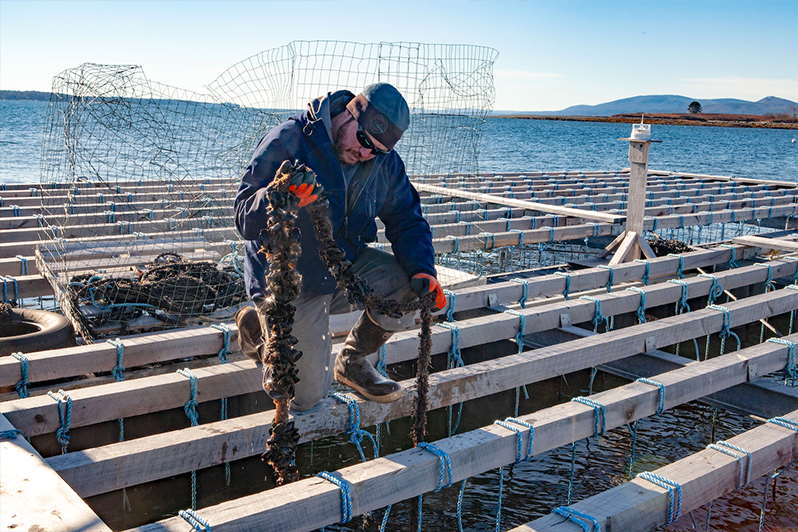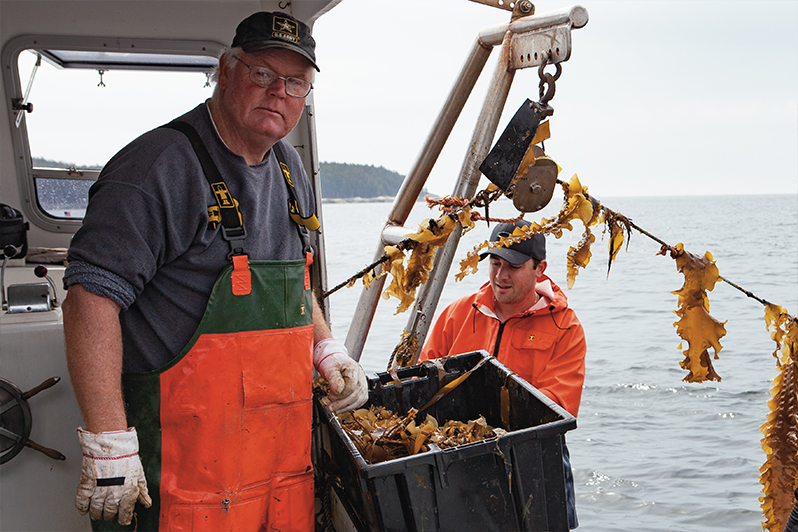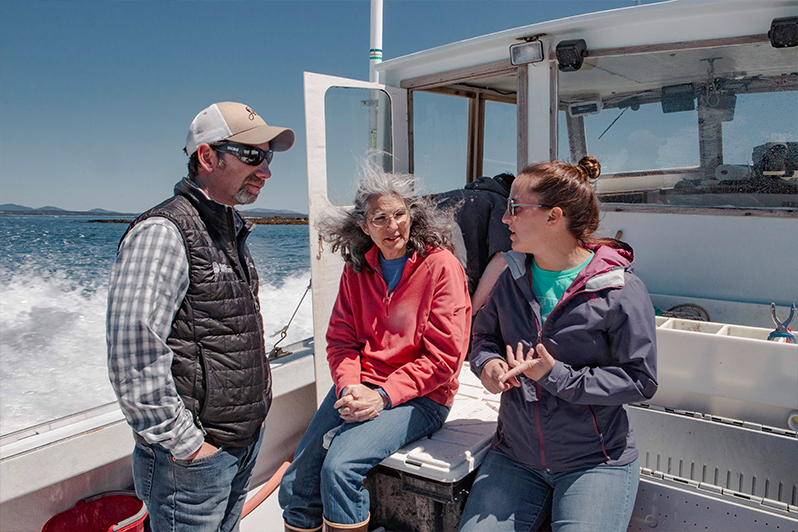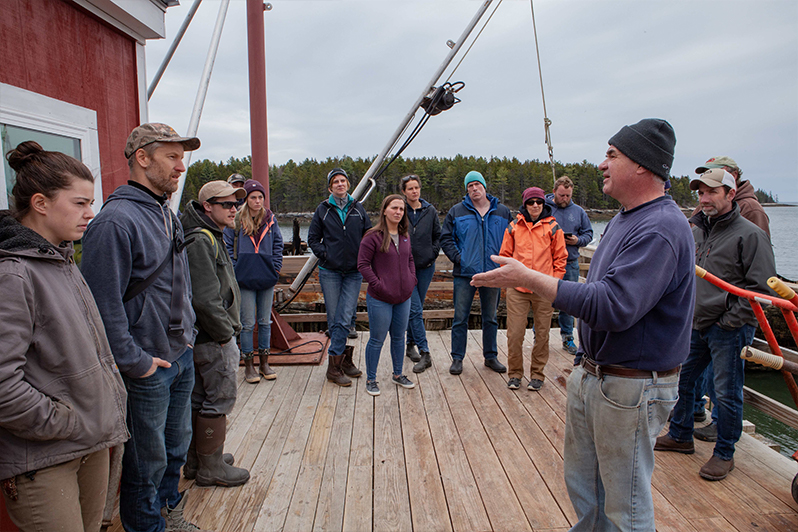BACKGROUND
The world is eating more farmed seafood than ever before, and aquaculture continues to grow faster than any other major food production sector. Maine’s aquaculture sector generates $137.6 million for the states economy and is poised to grow significantly in the coming years. As a result, more communities are looking at ways to help individuals enter this industry.
The Island Institute saw this unique opportunity as complementary to their work in coastal communities. Shellfish and seaweed aquaculture can be done by fishermen alongside their fishing businesses and can create an economic shock absorber to lessen the blow of climate-driven instability on working families. In order to help fisherman start aquaculture farms, the Island Institute developed the Aquaculture Business Development (ABD) Program in 2016. It ran until 2019.
“With lobstering the way it is, and the whole world the way it is, you really need a backup plan. I’ve been in the urchin industry, the shrimping industry, and now we’re going to go into the kelp industry.”
–Keith Miller, fisherman who now grows kelp.
HOW IT WORKED
The philosophy of the ABD program was simple. First, target leaders and rising stars in the lobster industry poised to be successful in creating income-generating aquaculture businesses for their communities within a short time frame. Second, aggregate the impact and geographic distribution by working with fishermen up and down the coast, who—in turn—will be able to create a proof of concept and inspire other fishermen who are interested in starting their own aquaculture businesses.
But the question remains: How do you train and support an aquaculturist in 1-3 years?
The ABD program took both an academic and experiential approach to this conundrum.
The strength of the ABD program was its focus on business planning, its prolonged one-on-one support services, and its networking strategy to help ABD cohort members get in the water. Like starting or expanding any business, it can be challenging to wade through unfamiliar regulations, create a business plan, and understand the complexities of the supply chain.
BUSINESS SUPPORT SERVICES THAT ABD PROVIDED:
- Training on various aquaculture species including mussels, oysters, and seaweed species
- Farm health and public health training
- Assistance in the understanding and acquisition of the required state leasing and licensing, site selection, and maintaining positive community relations
- Contracting (for free to participants) with an environmental consulting business to monitor and test farm sites
- On-site training at established aquaculture operations in Maine and southern New England
- Connecting participants into a robust network of existing aquaculturists and industry experts
- One-on-one assistance with developing a business plan, marketing strategy, and farm management plan
- Facilitated access to financing and continued business support for the first three years of business operation
The program provided an essential combination of advanced technical assistance, industry networking, small business loans, and professional development microgrants to ensure that burgeoning aquaculture entrepreneurs had the support they needed from the very first decision of which aquaculture species to cultivate, to making sure their new employees had the training they need to be most successful on the job.
Along with the technical assistance services Island Institute staff provided to ABD participants, it also provided microgrants for professional development. The microgrants gave small business owners the chance to help their employees gain necessary skills, qualifying certifications, and the technical training they needed to support the growth of their business.
Grants ranged from $500-$1500. In prior years, an oyster grower from the ABD program received a grant to help source and engage new markets outside of Maine. Another oyster grower used the grant to send two employees to HACCP certification training. A third company used the grant for branding and marketing assistance for their new aquaculture operation.
Several ABD fisherman have their aquaculture operations underway, and they continue to build a network of fishermen/farmers that can educate and inspire one another. It fosters the network of communication between farmers by making direct connections and actively encouraging a culture of information sharing between ABD participants. One of the biggest values to this program is the extensive network of industry partners who share best practices and potential commercial partnerships with new growers.
“One of the biggest benefits for us was going down to Casco Bay and seeing Bangs Island Mussels and Calendar Island Mussels. Both of them have been very helpful in us getting a start in the aquaculture industry.”
–Josh Conover, fisherman & boatyard owner, ABD participant, and now owner of Marshall Cove Aquaculture
Institute staff indicated that this program surpassed expectations in terms of both participant interest as well the speed with which participants successfully launched new kelp and shellfish aquaculture businesses. This bodes well for coastal communities and Maines aquaculture industry in general.
RESOURCES
The Island Institute’s Current Marine Economy Programming
Originally Published October 2019





